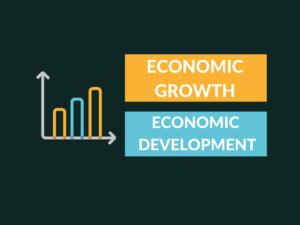What is Inflation?
Inflation refers to the general increase in prices of goods and services over a period of time, resulting in a decrease in the purchasing power of money. It is usually measured by calculating the percentage change in a price index, such as the Consumer Price Index (CPI). Inflation can occur due to various factors like increased production costs, demand-supply imbalances, or government monetary policies.
Examples of Inflation
1. In 2020, the price of oil increased by 20% globally, leading to an increase in fuel prices and transportation costs.
2. The cost of housing in major cities has been rising significantly, making it more difficult for people to afford homes.
3. College tuition fees have been steadily increasing over the years, making higher education less affordable for many.
What is Recession?
Recession refers to a period of significant economic decline, characterized by a contraction in economic growth, high unemployment rates, reduced consumer spending, and a drop in business profits. It is typically defined as two consecutive quarters of negative economic growth. Recession can be caused by factors such as decreased consumer spending, financial crises, or a decline in investment.
Examples of Recession
1. The 2008 global financial crisis resulted in a severe recession, with many countries experiencing a contraction in their economies and a rise in unemployment rates.
2. The COVID-19 pandemic led to a global recession in 2020, as lockdown measures and reduced economic activity caused a sharp decline in GDP.
3. The dot-com bubble burst in the early 2000s, causing a recession in the technology sector and leading to job losses and business closures.
Differences between Inflation and Recession
| Difference Area | Inflation | Recession |
|---|---|---|
| Definition | General increase in prices of goods and services | Period of economic decline characterized by reduced growth and high unemployment |
| Impact on Prices | Prices generally rise | Prices may fall or remain stagnant |
| Employment | Unemployment rates may rise or fall | Unemployment rates typically rise |
| Consumer Spending | Consumer spending may decrease | Consumer spending usually decreases |
| Business Profits | Business profits may increase or decrease | Business profits generally decrease |
| Government Intervention | Government may implement monetary policies to control inflation | Government may implement fiscal policies to stimulate economic growth |
| Causes | Increased production costs, demand-supply imbalances, monetary policies | Decreased consumer spending, financial crises, decline in investment |
| Duration | Can occur over an extended period | Can be short-term or long-term |
| Economic Growth | Can coexist with economic growth | Associated with a decline in economic growth |
| Impact on Investments | May erode the real value of investments | Investments may decline in value |
Conclusion:
Inflation and recession are two different economic phenomena. Inflation refers to a general increase in prices, while recession signifies a decline in economic growth and increased unemployment. While inflation can coexist with economic growth, recession is associated with a decline in economic activity. Government intervention, impact on prices, employment, consumer spending, and business profits are among the key differences between inflation and recession.
Knowledge Check:
1. What is inflation?
– General increase in prices of goods and services.
2. Define recession.
– Period of economic decline characterized by reduced growth and high unemployment.
3. How does inflation impact prices?
– Prices generally rise.
4. What happens to unemployment rates during a recession?
– Unemployment rates typically rise.
5. Does inflation affect consumer spending?
– Consumer spending may decrease.
6. Name a cause of recession.
– Decreased consumer spending, financial crises, decline in investment.
7. What type of policies does the government implement to control inflation?
– Monetary policies.
8. Can recession occur over an extended period?
– Yes, it can be short-term or long-term.
9. How does inflation impact investments?
– It may erode the real value of investments.
10. What is the relationship between recession and economic growth?
– Recession is associated with a decline in economic growth.
Related Topics:
– Understanding the Effects of Inflation on the Economy
– Strategies to Combat Inflation and Stimulate Economic Growth
– The Role of Central Banks in Controlling Inflation and Stabilizing the Economy



